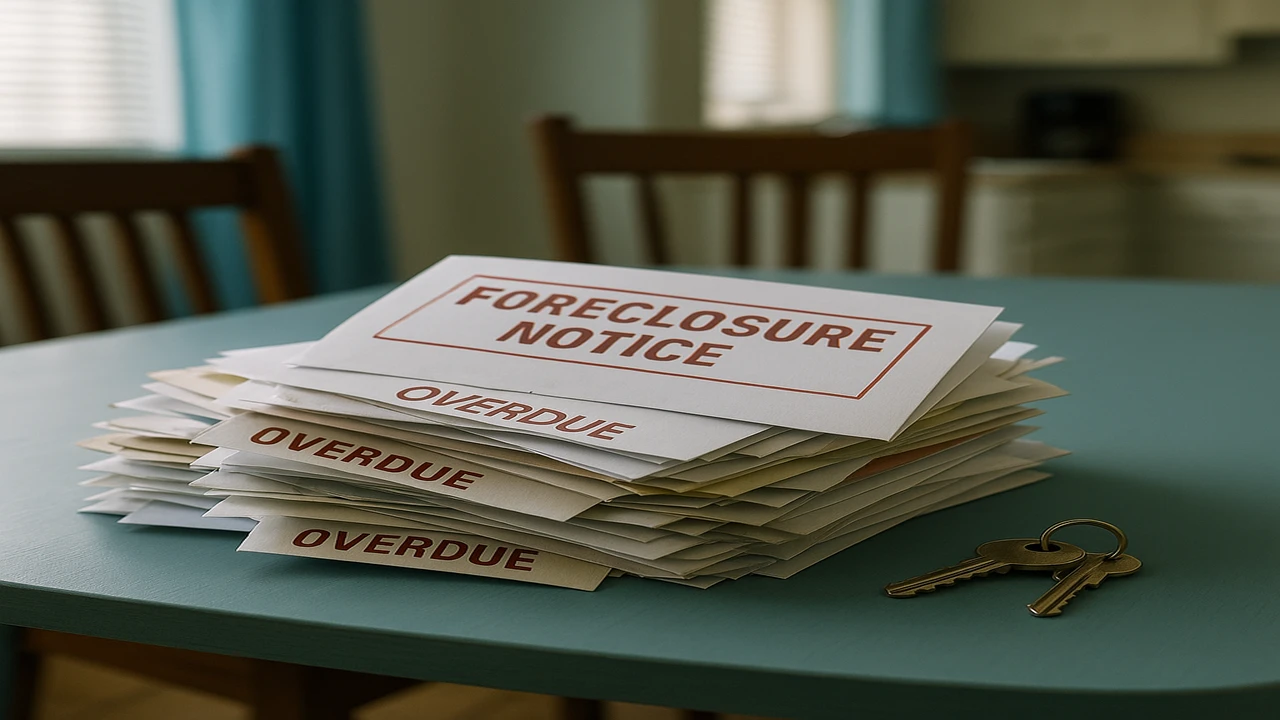Behind on your mortgage in Nevada? You’re not alone—and you still have options. This guide explains the most effective ways to stop or delay foreclosure, how fast each one works, and what to do first. From reinstating your loan and applying for a modification to selling for cash before auction—or exploring carefully structured creative options like subject-to (SUBTO) or novation— the goal is to protect your equity and move forward with confidence. As a HUD-certified housing counselor, we blend formal training with practical experience in Nevada’s local markets.
- Act immediately: Call your lender’s loss-mitigation line and confirm exact deadlines (sale date, response due dates).
- Best “stop” tools: Reinstatement (catch up in full), loan modification, or selling before auction to pay off the loan.
- “Delay” tools: Forbearance, repayment plans, and (with counsel) bankruptcy’s automatic stay.
- Cash sale: If you have equity and need certainty, an as-is sale can close in 7–14 days in Reno–Sparks and fully stop foreclosure by paying off the loan.
- Creative options: Subject-to (SUBTO) or novation require careful contracts and trustworthy buyers—use professionals.
- Use time wisely: Gather documents, choose a path, and move fast to protect equity and credit.
Traditional Options to Stop Foreclosure
1) Reinstatement or Repayment Plan
If you can catch up the full past-due amount (plus fees), reinstatement is the fastest way to stop foreclosure. Some lenders also offer repayment plans that spread arrears over several months. Repayment plans increase your monthly payment, but they may satisfy the lender enough to cancel a sale date once you’re back on track.
2) Forbearance
Forbearance pauses or reduces payments for a limited period. It’s a delay tool—not a permanent fix—because the missed amount is due later (lump sum, partial installments, or rolled into the loan if your lender allows). Forbearance buys time to stabilize income or assemble documents for a longer-term solution.
3) Loan Modification
A loan modification permanently changes loan terms (rate, term, capitalization of arrears) to create an affordable payment. Approval depends on income stability, hardship, and lender guidelines. Mods take time to review, so open the loss-mitigation conversation immediately if this is your target outcome.
4) Sell Before Auction (As-Is, for Cash)
If you have equity and need certainty, a direct cash sale can pay the loan in full, stop foreclosure, and protect your credit from a completed sale. In Reno–Sparks, as-is cash sales commonly close in 7–14 days (faster if title is clear), and you choose the date that fits your move or payoff logistics.
5) Bankruptcy
Filing for bankruptcy (Chapter 7 or 13) triggers an automatic stay that pauses foreclosure temporarily. It can be effective in urgent situations, but it has legal and credit consequences. Always consult an attorney to understand eligibility, timing, and long-term impacts before choosing this route.
Why Speed and Certainty Matter in Nevada
Once a Notice of Default is filed, timelines can move quickly. Auction dates leave little room for delays, and lender response times vary. Having a clear plan—reinstatement, a loan mod, or a cash sale—helps you avoid unnecessary loss of equity and additional credit damage. Confirm your exact deadlines with your lender and title company so you can match the option to the clock.
Timeline: How Fast Can These Options Work?
- Reinstatement / Repayment: As soon as funds and terms are approved—potentially within days.
- Forbearance: Weeks to arrange; relief period lasts months per lender policy.
- Loan Modification: Typically weeks to review; faster with a complete document packet.
- Cash Sale: Often 7–14 days once title is clear (rush closings possible).
- Bankruptcy: Automatic stay is immediate upon filing (timing and eligibility are case-specific).
Choose the path that fits your deadline. If the sale date is close, prioritize options that deliver certainty fastest.
Tell us about your property for a fast, fair cash offer.
Get My No-Obligation OfferLess-Traditional Options We Have Experience With
Subject-To (SUBTO)
An investor takes over payments on your existing mortgage subject to the current loan, while title transfers to the buyer. This can prevent foreclosure and preserve credit, but it requires a trustworthy buyer and tight legal paperwork. Understand due-on-sale risks and servicing logistics before proceeding.
Novation
With novation, an investor becomes the party who updates and lists the home (per contract), pays off arrears at closing, and shares proceeds per agreement. Works best when repairs are needed to reach top market value. Use an experienced title/escrow team and clear agreements to protect your interests.
Personal Loan / Family Assistance
A short-term loan can bridge arrears to reinstate the mortgage. Be realistic about repayment—high rates or new debt can create new strain if income isn’t stable.
Renting the Property
Renting can help over the long term, but it’s rarely a quick fix for an imminent auction. Only consider if you can secure tenants quickly, cover arrears, and manage owner costs.
What to Do First (and What to Gather)
- Call loss mitigation: Confirm sale date, reinstatement quote, and available options.
- Set your deadline: Work backward from the sale date to pick a viable strategy.
- Assemble documents: Income proof, hardship letter, bank statements, tax returns, mortgage statements, HOA info, and ID.
- Title check: Verify liens, judgments, or HOA balances to avoid last-minute surprises.
- Get help: Attorney and/or HUD-certified housing counselor for legal or program guidance.
Avoid Scams & High-Pressure Tactics
- Beware of anyone demanding upfront fees to “guarantee” a modification or delay.
- Don’t sign deeds or contracts you don’t fully understand—have an attorney review creative deals.
- Insist on using a reputable title/escrow company for any sale or agreement.
Important Note
This guide provides general information and is not legal advice. Foreclosure rules, timelines, and solutions vary by case. Consider consulting a qualified attorney and/or a HUD-certified housing counselor before making final decisions.
